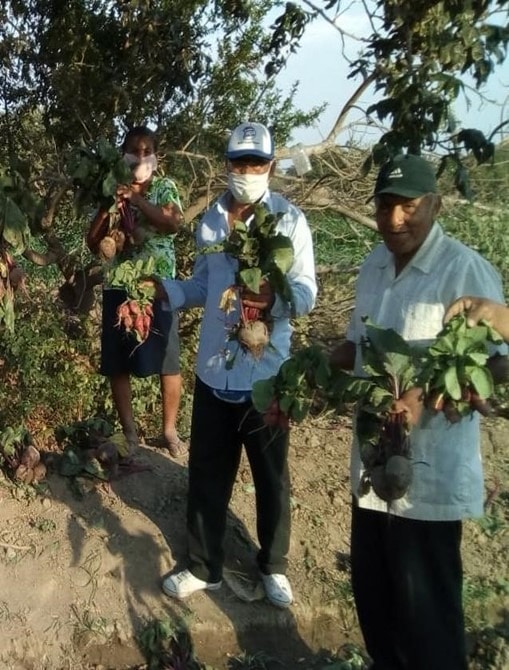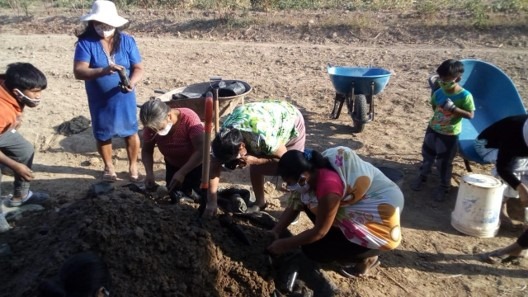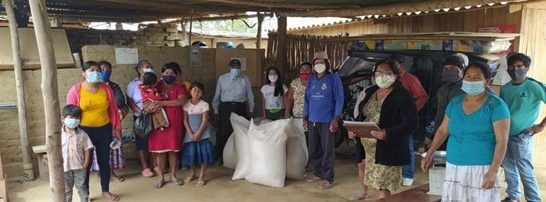In 2017, families in a tiny rural community in San Isidro, Lambayeque, lost houses, lands, crops, animals, their irrigation system and their water supply to flooding caused by El Niño. They were living in a shelter when members of Heart-Links’ partner Centro Esperanza met them and offered to help them organize so they could rebuild.
But the plan was not just to rebuild. Centro Esperanza and the families of San Isidro wanted to rebuild in a way that would make their community more resilient, protect the environment, ensure women participated equally as community leaders and improve living standards.

Through a project funded by Heart-Links donors, the community succeeded in rehabilitating its well, ensuring access to drinking water and enabling irrigation. They also secured equipment for producing animal feed
from agricultural waste in preparation for the guinea pig cooperative they hoped to start.
Even after the first wave of COVID-19 hit, they were able to plant basic food crops and share them with neighbours in need. However, with markets closed and all movement prohibited, with no such thing as unemployment insurance and only meagre governments supports that took months to arrive, the situation grew desperate.
Aware of these conditions, Heart-Links told Centro Esperanza to feel free to divert project funds to meet these new and changing needs. We asked them to make whatever modifications were necessary to best help people in need. A generous donation by the Urusline Sisters of Chatham meant we could also send additional emergency aid to San Isidro.
Today, the pandemic is far from over. In fact, Peru is just entering its second wave now. But the people of San Isidro have not given up on their dream to build a resilient, sustainable, healthy community.
They have modified their animal husbandry initiative, deciding to raise chickens instead. In 2021, the families aim to develop an organic chicken hatchery that will produce eggs and meat for themselves and the market. In solidarity with impoverished families who do not belong to their association, each family will donate 5 chicks to families in need.

Participation by women in leadership positions will continue to be a focus. And Centro Esperanza will provide workshops in community organization, gender rights, marketing, cost analysis, strategic alliances, and business planning.
Solidarity helped get this community through the first wave of COVID-19, and solidarity—shown by Canadians and by our Peruvian partners but also by the families of San Isidro who share with each other and with their neighbours—will help them get through the next wave.
Would you like to learn more about the work Heart-Links supports in San Isidro? Join us at Share the Love @ Home and meet Felicita Ramírez, a member of Centro Esperanza’s leadership team, who will tell us more about her organization and the people they work with.

